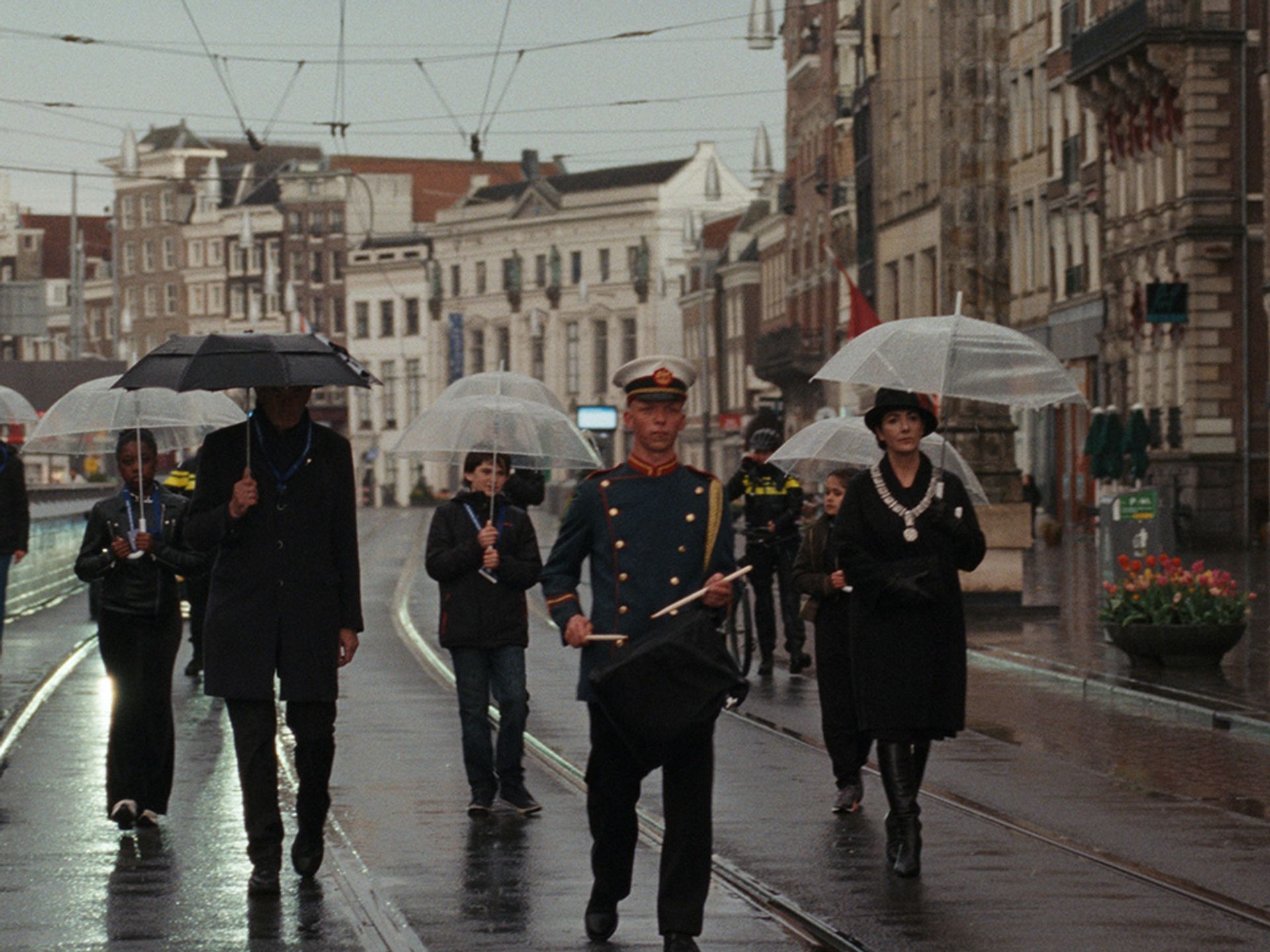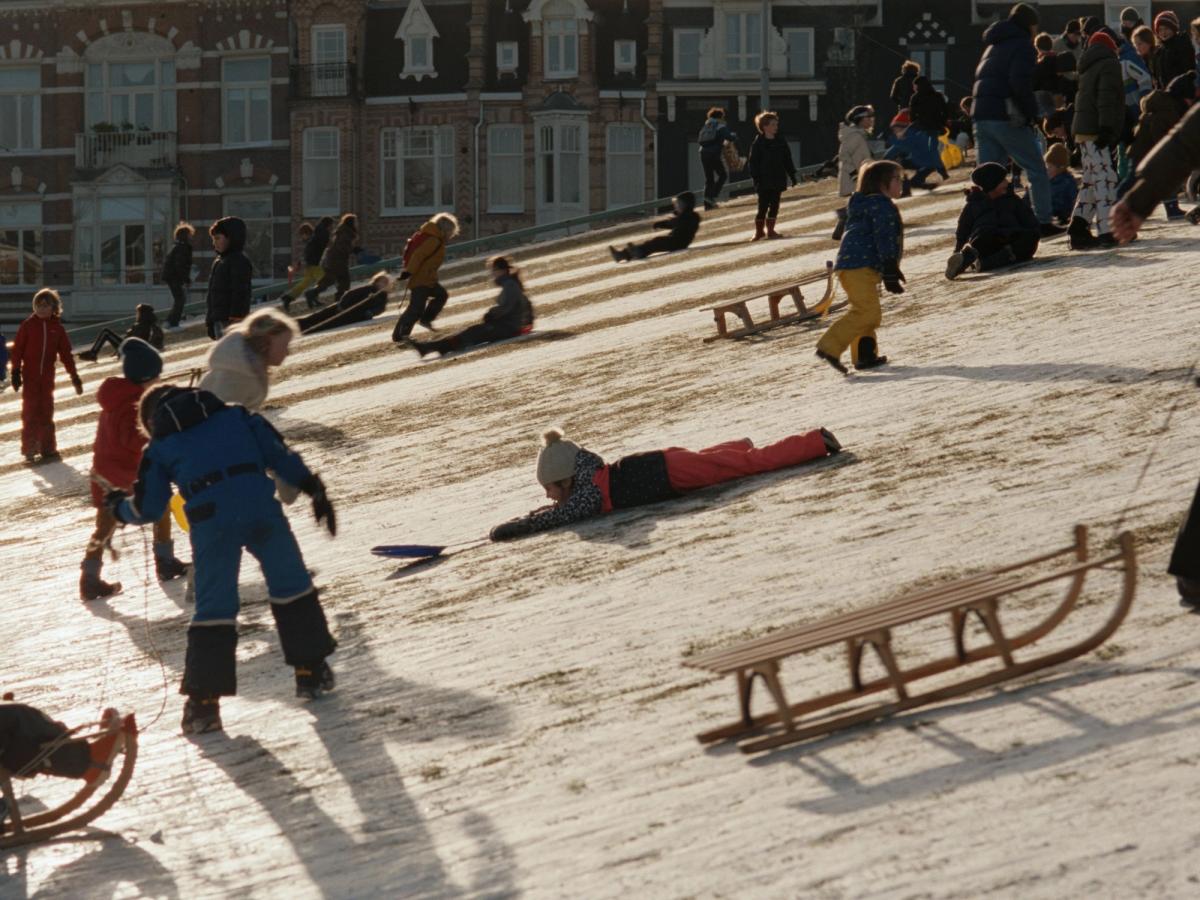Steve McQueen, the British artist and film-maker with a string of awards for both strands of his practice, including the Turner Prize and an Academy Award, has completed a new documentary. It will be released in cinemas in the US on 25 December, and in the UK and Ireland on 9 February 2024.
Occupied City investigates the Nazi occupation of Amsterdam between 1940 and 1945 and the effect of coronavirus on the Dutch capital in 2020, and has a running time of over four hours. It is mesmerising, discursive and impressionistic; screenings so far have proved that in spite of its 260 minute running time, it keeps audiences enraptured to the end.
McQueen has received plaudits for a previous documentary, Uprising, released in 2021. It examines a tragic fire in South London that caused the death of 13 young Black British people in 1981 and the significant repercussions around race relations that it provoked. In 2017, he also made Grenfell, in which he filmed the tower block in west London consumed by fire that year, a tragedy in which 72 people died.
Occupied City is partly derived from the book written by McQueen’s wife Bianca Stitger, in which she investigates what happened at 2,000 addresses around Amsterdam during the Nazi occupation. The film visits 130 of these, uncovering the past and also showing the present. “When I first moved to Amsterdam in the late 1990s, I found myself surrounded by recent history. It felt like there were ghosts. Once I asked my wife why there was a small sculpture on the side of a building, and she said it was where 15 people had been killed in the Occupation,” explained McQueen in London recently. “My daughter was at a school that had been a former Jewish school, there’s another that was an SS headquarters. These things come into play every day.”
Amsterdam was invaded by the German army on 10 May 1940, and occupied until 5 May 1945. More than 60,000 Jews from Amsterdam were either killed in the city or sent via the Westerbork transit camp to their death in what the film refers to as killing centres, not concentration camps. Sinti and Roma people were also taken away. In late 1944, what was called the Hunger Winter descended, a man-made famine caused partly by a Nazi blockade, and many more citizens met their death. It was another shocking event in a modern, industrialised city.

A still from Steve McQueen's 2023 documentary Occupied City Courtesy of A24
McQueen shot the lingering footage of the city in 2020, against the background of another unforeseen event— the Covid-19 pandemic. “I used 35mm film because I wanted every moment to count,” he said. “It’s a very ritualistic and careful process for me because I don’t like to waste film.” Nonetheless he accrued 36 hours of of street scenes, architecture and interiors. A voice over, by a young actor Melanie Hyams, provides a constant wash of information—a tailor who insisted in being shot in his best pink shirt; a diet consisting solely of sugar beet and tulip bulbs; an imprisoned Jew who describes being on the death list as like "reporting from shipwreck"; the banning of Black, but not Latin, music in 1941. The score, by British cellist and composer Oliver Coates, was commissioned by McQueen after he heard something that caught his ear in a department store. It is cinema-making at its most experiential.
At four hours, it is also wise that McQueen decided upon a half-time intermission of 15 minutes. “There’s a lot going on, it’s too much to take in,” he said. “For the first 2 hours you’re getting adjusted. In the second half, you’ve developed trust, you let yourself go.”


